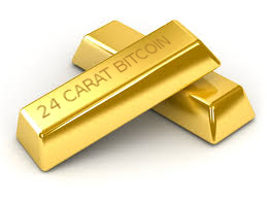How to put a Value on Gold vs Bitcoin

The price of gold has fallen sharply. Is it really worth less then before? How should we value gold?
In August 2011, gold hit an all time high against the US dollar of around $1910 per ounce. Today that ounce of gold will cost us $1147 and the trend is downwards. There are people and organisations both talking down and talking up the price of gold, which suggests that it’s less than clear how to value gold at all.
Arguments about gold equally apply to other precious metals and minerals, such as diamonds and silver. But when we compare and contrast gold vs Bitcoin, can we still uphold gold as the ultimate store of value?
Why should gold be worth anything at all?
It’s an interesting question. We’re talking about a metal that’s got some industrial uses, but not many. It’s soft and it’s rare so it won’t find its way into any mass production lines. But something must underpin its value.
It was $35 per ounce for a long time
Under the 1944 Bretton Woods system, the US dollar was fixed against gold at $35/ounce and other currencies around the world were fixed against the US dollar. Effectively, we all knew what gold was worth. But that fix was unsustainable. Inflation meant that it was getting increasingly expensive for the US to convert dollars to gold at unrealistically low prices. When Nixon scrapped Bretton Woods in 1971, gold rose in price (or, if you prefer, the US dollar fell against gold) very quickly first via an official devaluation to $38 in 1972 then climbing on the markets to $850 in 1980.
But why should gold be worth more than the US dollar? The usual response is that gold is inflation-proof. You can’t print more gold like you can dollars. However the last few years have challenged that thesis, with gold actually falling under QE rather than rising. Then again, US dollars are in demand because US taxes have to be paid using them. Gold, in comparison, is useless.
Could it be that after thousands of years, gold has suddenly lost its value?
Gold has always been the liquid asset of choice
In Europe, historians point to the bronze age as being the start of civilisation as we know it, moving on to the iron age once iron was discovered in ore. Gold was pretty well unknown. But in other parts of the world, ancient texts point to a golden age which preceded the extraction of base metals and iron. Gold was known in ancient biblical times and its value was as likely found in its usefulness as much as in its monetary value. Early gold would have been easily extracted, probably visible from ground level or in caves.
Right through Roman times and into the middle ages, gold was used as money before silver, bronze and other alloys gradually took its place. It is this history of gold as being a store of value that commentators use as justifying it as having a value today.
But isn’t that a bit like saying gold has some kind of memory? Or, rather, we treat it as if it must have value today because it had value in the past?
So why are gold mines going through a hard time?
The thing about gold is that it is increasingly more difficult to extract. More precisely, it is increasingly more expensive to extract and it gets to the point where the price of gold isn’t high enough to justify mining it. That doesn’t mean that gold stops being traded at all, just that the gold that is traded is from existing gold in circulation. So although $1137 is a lot more than $35 back in 1971, inflation and the increased cost of extraction coupled with a paucity in new gold discoveries has meant that gold mining isn’t as lucrative as it once was.
The case against gold
Advocates of Bitcoin and other cryptocurrencies argue that their products mimic gold in all but nature, cryptocurrencies being totally digital. Bitcoin can be “mined”, it is convertible to fiat currencies (i.e. the money we use) and it has a limited supply. In fact this infographic on jmbullion.com explains the comparisons and contrasts rather well.
And if Bitcoin has many of the properties of gold, why need we bother with the shiny metal any more? Well, for some there’s the element of trust. Bitcoin might be virtually unhackable compared with the risk of having gold stolen, but it’s hard to see the Russian and Chinese treasuries buying Bitcoin rather than gold. After all, while Bitcoin might be in limited supply, there is nothing to stop another cryptocurrency being started. Indeed there already are a great many cryptocurrencies out there. You can’t just invent another precious metal.
Perhaps we as a world civilisation are indeed on the cusp of a new age. Perhaps the golden age, silver age, bronze age, and iron age will give way to the crypto age? Or perhaps not.
So how can we value gold?
We can’t. We can only accept that it may have a part to play in exchangeable wealth in years to come. Perhaps those who extrapolate history into our future, and see gold as a resilient store of value will be proven right. Or perhaps the crypto’s will be right, and gold doesn’t offer anything that their Bitcoins can’t also offer. According to this article it’s going to be a win-win:
“Neither is perfect. And Gold will not soon be replaced as the preferred commodity as a store of value. But Bitcoin is coming, and the century is still young. Five years from now, this can look very different. Bitcoin isn’t going anywhere. It can’t be uninvented, so let’s agree to have this discussion again in 5 years. I think the landscape will be quite different, and prosperous, for both.”







